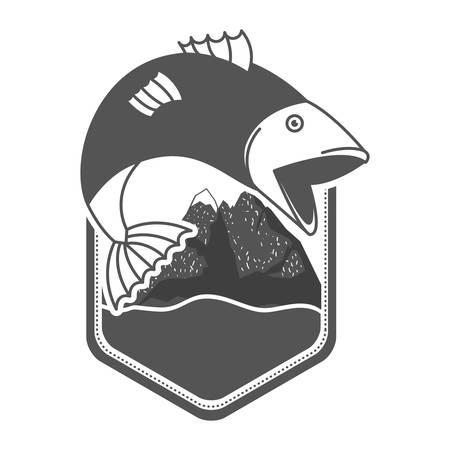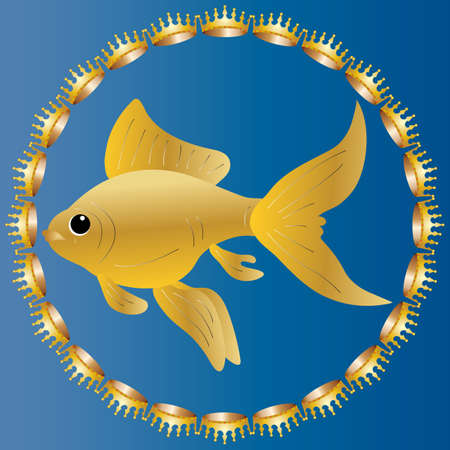The Rise of Recreational Fishing in India
Across the diverse waterways of India, from the sacred stretches of the Ganges to the tranquil Kerala backwaters, a new wave is sweeping through the angling community. What was once seen purely as a traditional livelihood or a pastime for a select few has now evolved into a dynamic and competitive pursuit. Fishing is no longer just an age-old tradition passed down generations; it has started to capture the attention of young enthusiasts and professionals alike. The emergence of fishing clubs across major cities and rural hotspots is fuelling this transformation, acting as catalysts for change and fostering a culture where recreational fishing is not only celebrated but also seen as a stepping stone towards professionalism. These clubs are helping anglers gear up with modern equipment, adopt scientific techniques, and build tactical approaches—turning casual fishers into skilled competitors ready to make their mark on both national and international stages.
Role of Fishing Clubs in Skill Development
Indian fishing clubs play a pivotal role in transforming passionate anglers into skilled professionals by providing structured skill development opportunities. These clubs act as training grounds where local enthusiasts can gain hands-on experience under the guidance of seasoned mentors and expert trainers. Through a blend of traditional Indian fishing wisdom and the latest international techniques, members are equipped with practical skills that are crucial for success in both leisure and competitive angling.
Hands-On Training & Workshops
Most fishing clubs across India, whether in Kerala’s backwaters or along the Ganges, conduct regular workshops that focus on various aspects such as bait selection, knot tying, casting accuracy, and the use of indigenous tools like bamboo rods or locally made lures. Practical sessions are designed to simulate real-life conditions encountered in Indian rivers and lakes, giving participants the confidence to handle diverse challenges.
Mentorship by Seasoned Anglers
Clubs foster a strong mentorship culture, pairing novices with experienced fishers who share insights drawn from years on Indian waters. This guru-shishya (mentor-disciple) tradition ensures knowledge transfer not only about catching prized species like mahseer or rohu but also about respecting ecological balance and understanding local fish migration patterns.
Bridging Indigenous Techniques and Modern Gear
| Traditional Skills Taught | Modern Equipment Training |
|---|---|
| Casting with bamboo rods Using hand-woven nets Identifying native bait Reading river currents |
Handling spinning reels Using fish finders Maintenance of carbon-fibre rods Safety protocols with advanced gear |
This holistic approach helps club members stay rooted in Indian angling heritage while embracing modern advancements, making them adaptable for both domestic tournaments and international competitions.

3. Networking Opportunities and Community Building
Fishing clubs in India are more than just groups of like-minded hobbyists—they are dynamic hubs where passionate anglers from all corners of the country come together. In these clubs, you will meet everyone from experienced tournament champions hailing from Kerala’s backwaters to enthusiastic beginners casting their first line in the Yamuna. The power of this diversity is immense: it creates a melting pot of fishing techniques, local knowledge, and tactical innovations that fuel competitive growth.
At their core, Indian fishing clubs serve as powerful networking platforms. Here, connections are forged not only over chai breaks but also during high-stakes discussions about monsoon river strategies or the latest tackle trends. These relationships open up exclusive doors—members often get insider information on upcoming competitions, access to discounted or imported gear, and personal invites to regional angling tournaments that are otherwise hard to enter. For an angler aspiring to turn their passion into a serious profession, these links can be game-changers.
The sense of community within these clubs is built on mutual respect and a shared drive for excellence. Veterans willingly mentor newcomers in areas such as bait selection for Indian species like mahseer or catla, and junior members introduce digital tools for better catch tracking. This spirit of collaboration means everyone levels up together, making each club a hotbed of tactical evolution and career advancement.
Moreover, many clubs establish formal partnerships with gear manufacturers and tournament organisers. Such alliances translate into special workshops for members to test new rods, learn advanced sonar fish-finding techniques, or even participate in sponsored competitions with heavy cash prizes and media coverage—crucial stepping stones for those aiming to make a professional mark.
Whether you’re looking to upgrade your Shimano spinning reel or find a partner for the next All-India Angling Championship, joining a well-connected fishing club puts you right at the heart of India’s growing angling scene. Here, ambition meets opportunity—and through solid networks and community support, what starts as a weekend hobby can quickly evolve into a full-blown professional journey.
4. Access to Exclusive Resources and Competitions
One of the biggest advantages of joining a fishing club in India is the access to exclusive resources that are otherwise out of reach for individual anglers. Fishing clubs often maintain tie-ups with private landowners, resorts, or government bodies, granting their members entry to high-potential fishing spots that are not open to the general public. These premium locations are well-stocked and managed, offering the right kind of environment for both practice and serious angling, which is essential if you wish to level up from being a weekend hobbyist to a professional competitor.
Discounted Tackle & Gear
Indian fishing clubs collaborate with leading tackle shops and brands to offer special discounts on rods, reels, lures, lines, and other equipment. This is a game-changer for aspiring professionals, as top-tier gear can be expensive. Clubs may also organize group-buying programs or demo days where members can try out the latest equipment before making an investment.
| Resource Type | Club Member Benefit |
|---|---|
| Private Fishing Spots | Exclusive access; less crowded; better catch rates |
| Tackle & Equipment | Discounts up to 20-30%; early access to new products |
| Workshops & Seminars | Free or subsidised training by experts |
High-Stakes Tournaments: The Indian Competitive Edge
The real test of your angling skills comes in competitions, and this is where Indian fishing clubs truly shine. They host regular high-stakes tournaments—both freshwater and saltwater—that attract some of the best talent from across the country. These events are more than just about catching the biggest fish; they demand strategic thinking, tactical gear selection, and mastery over various fishing techniques suited for local waters. Winners often receive cash prizes, trophies, and even sponsorship opportunities from major brands.
How Clubs Prepare Members for Competitive Angling
- Organising mock tournaments to simulate real-world pressure scenarios
- Providing mentorship from seasoned champions within the club
- Arranging strategy sessions on weather patterns, fish behaviour, and location scouting specific to Indian rivers and coastal zones
Why This Matters for Aspiring Pros in India
The journey from enthusiast to professional angler in India requires much more than passion—it demands resources, access, and competitive exposure. By leveraging exclusive benefits provided by fishing clubs, members get a headstart in building their skills and reputation within Indias fast-evolving angling scene.
5. Turning Passion into Profession: Anglers’ Success Stories
Across India, numerous anglers have successfully transitioned from weekend hobbyists to respected professionals, thanks to the strong network and support provided by fishing clubs. These inspiring stories highlight how club membership not only sharpens angling skills but also opens doors to lucrative opportunities in the sportfishing industry.
From Hobbyist to Trophy Winner: The Rise of Ajay Sharma
Ajay Sharma from Bengaluru began as a casual angler, spending weekends at local lakes. After joining the Karnataka Anglers’ Association, he gained access to advanced workshops, competitive events, and seasoned mentors. With relentless practice and tactical guidance from club veterans, Ajay started dominating regional tournaments. Today, he is a regular on the national competition circuit, often representing India in international matches, and sponsors now back his professional journey.
Becoming a Professional Guide: Priya Menon’s Journey
Priya Menon from Kerala always dreamed of turning her passion for fishing into a career. Through her involvement with the Kerala Sport Fishing Club, she connected with experienced guides who introduced her to the nuances of client handling and eco-friendly angling practices unique to Indian waters. With her knowledge of local species and river systems, Priya established a successful guiding business catering to domestic and foreign tourists eager for authentic angling experiences in India’s backwaters.
Entrepreneurship on the Water: Rakesh Patel’s Tackle Shop Success
Rakesh Patel from Ahmedabad noticed a gap in quality fishing gear tailored for Indian conditions. Leveraging connections made through his city’s fishing club, Rakesh sourced innovative tackle directly from manufacturers and launched his own retail outlet. His shop quickly became the go-to place for competitive anglers seeking specialized equipment and tactical advice—proving that fishing clubs can be powerful platforms for entrepreneurial ventures as well.
These stories are proof that with determination, strategic networking through fishing clubs, and a competitive mindset, Indian anglers can transform their passion into thriving careers—whether as top-tier competitors, professional guides, or savvy business owners in the rapidly evolving Indian sportfishing scene.
6. Navigating Challenges: Regulation and Sustainability
For every angler in India aiming to turn their passion into a profession, understanding and navigating the complex landscape of local regulations and sustainability practices is essential. Fishing clubs across India take on the critical role of educating their members about government fishing laws, licensing requirements, and seasonal restrictions that protect our diverse aquatic ecosystems. Through regular workshops and interactive sessions, these clubs ensure that members stay updated on changing policies and avoid legal pitfalls that could jeopardise their careers.
Moreover, Indian fishing clubs champion sustainable fishing techniques—like using environment-friendly gear, practising catch-and-release for endangered species, and respecting breeding seasons. These efforts go beyond just compliance; they foster a spirit of stewardship among anglers, teaching them to balance the thrill of the sport with responsibility towards nature. Clubs also promote community-driven conservation initiatives such as river clean-ups and mangrove restoration projects, making anglers active guardians of the waters they fish in.
By emphasising responsible resource management and ethical angling standards, fishing clubs help ensure that future generations can enjoy the same excitement of the catch. This focus on sustainability not only enhances the credibility of professional anglers but also opens doors to new opportunities—like eco-tourism guiding, educational workshops, and government-sponsored conservation programs. In this way, Indian fishing clubs do more than just build skills; they empower their members to be leaders in preserving both the sport and the environment for years to come.


